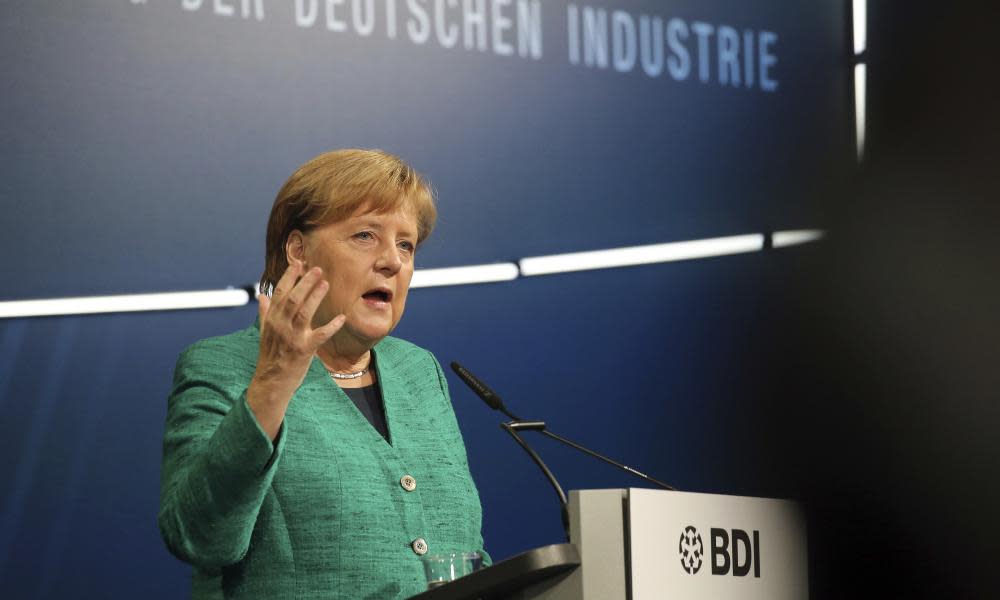Brexit transition period too short unless deal on table soon, says Merkel

Angela Merkel has warned the British government that the 21-month Brexit transition period will not be long enough if the terms of a future trade deal with the UK are not made clear and concrete in the next eight weeks.
In a speech to German industrialists, the German chancellor gave her support to the French president, Emmanuel Macron, who wants to avoid a vague political declaration on the terms of a future deal.
The move means that the UK parliament will be under no illusions as to the limitations of the future deal the British prime minister strikes before its meaningful vote, in a blow to those who have suggested that a “blind Brexit” could allow Theresa May to muddle through.
EU leaders fear if the parameters and limitations of the future deal with the UK are not made clear now, then negotiations after Brexit will be prolonged and messy.
Currently, an agreement on the framework of a deal will be decided by a qualified majority of member states while after Brexit day each capital would have a veto.
Macron and Merkel are also concerned that Eurosceptic movements may be able to exploit an ambiguous political declaration agreed ahead of elections to the European parliament in May, and be able to point to advantages on offer for those leaving the bloc.
It is understood that there was alarm expressed in EU capitals by a recent suggestion by the environment secretary, Michael Gove, that the UK could change its approach after 29 March 2019.
Merkel said the terms needed to be nailed down now “concretely” in the speech to German industrialists in Berlin.
She told business leaders the goal was “to formulate future relations with the UK as concretely as possible”. She said otherwise the transition period would “very quickly become too short” to conclude what was likely to be a “very intensive” set of negotiations.
“Playing for time, I believe, also doesn’t help the business community, because the business community needs clarity,” Merkel said. “We have six to eight weeks of very hard work ahead of us in which we have to take the political decisions. A lot depends on what Britain really wants.”
Merkel reiterated the rejection of the Chequers proposals, telling business leaders the UK “can’t belong to one part of EU common market but not to the other three”.
She said an agreement “might already be achievable in October” before a deal is signed off on at an EU summit scheduled for mid-November.
Meanwhile, the director general of the World Trade Organization (WTO) has said he would seek to minimise the damage of a no-deal Brexit, but said it would be a poor outcome for the UK, involving “pain”.
Roberto Azevêdo said at the same conference in Berlin that “clearly there will be an impact, and it’s not going to be a good one” but that the role of the WTO would be “to try to minimise the negative effects that this is going to have”.
He added: “If we can minimise the disruption, if we can minimise the pain ... that’s what we will try to do.”

 Yahoo News
Yahoo News 
